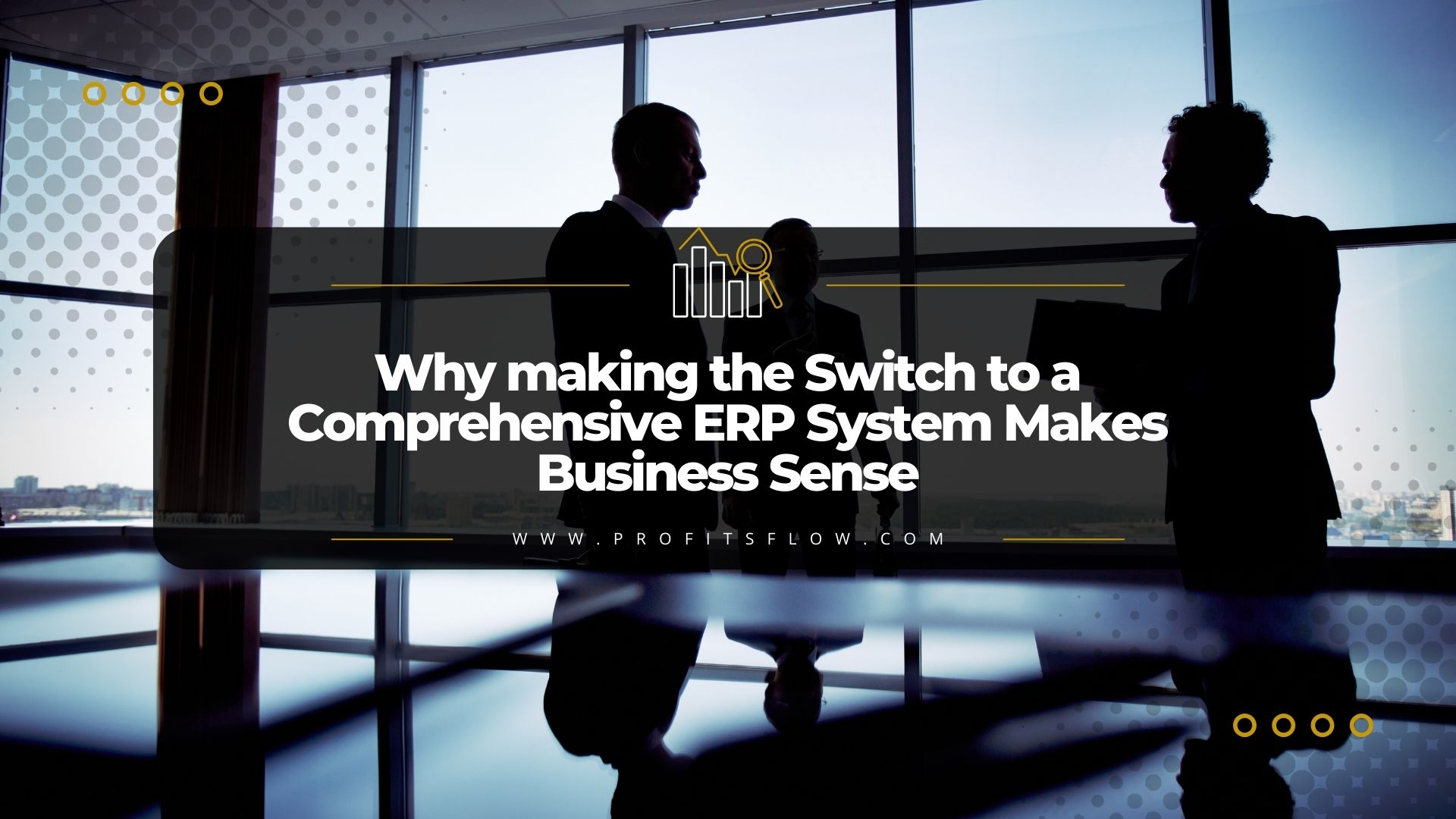Transform Your Business with a Comprehensive ERP System
In business today, staying competitive requires not only innovation but also efficiency. Enter Enterprise Resource Planning (ERP) systems, the backbone of streamlined operations for countless organisations worldwide. Yet, despite their proven benefits, many businesses still rely on a patchwork of disparate systems to manage various functions, inadvertently sacrificing efficiency and hindering growth in the process. In this blog, we’ll explore why consolidating to a comprehensive ERP system is not just a wise move but a strategic imperative for businesses aiming to thrive in today’s dynamic markets.
Streamlined Operations
Imagine a scenario where every department within your organisation operates in silos, each utilising its own set of tools and systems. The result? Duplication of efforts, data inconsistencies, and disjointed processes that impede productivity. A comprehensive ERP system integrates all these disparate functions into one cohesive platform, eliminating the need for manual data entry and streamlining processes across the board. By centralising operations, businesses can optimise workflows, reduce errors, and ultimately, achieve greater efficiency.
Real-Time Data Visibility and Decision Making
Informed decision-making can mean the difference between success and stagnation. With a comprehensive ERP system, businesses gain access to real-time data visibility, empowering stakeholders with accurate and up-to-date information at their fingertips. Whether it’s inventory levels, financial metrics, or customer insights, having all relevant data housed within a single system enables quicker, more informed decision-making, driving agility and competitive advantage.
Cost Savings
Maintaining multiple disparate systems comes at a cost – not just in terms of licensing fees and maintenance expenses but also in terms of the resources required for integration and support. By consolidating to a comprehensive ERP system, businesses can significantly reduce these overheads while maximising their ROI. With streamlined operations and reduced manual intervention, organisations can allocate their resources more efficiently, ultimately driving down costs and boosting profitability.
Enhanced Collaboration and Communication
Effective collaboration is hugely important to every business. Yet, when teams are forced to work across disparate systems, communication breakdowns and inefficiencies are inevitable. A comprehensive ERP system fosters better collaboration by providing shared dashboards, centralised document management, and workflow automation capabilities. By breaking down silos and facilitating seamless communication, businesses can enhance teamwork, transparency, and ultimately, productivity.
Scalability and Adaptability
As businesses grow and evolve, so too must their systems and processes. Unlike traditional, rigid solutions, comprehensive ERP systems offer scalability and adaptability, allowing organisations to scale up or down seamlessly without the need for major overhauls. With modular architectures and flexible deployment options, businesses can tailor their ERP systems to suit their evolving needs, future-proofing their operations and ensuring long-term success.
In conclusion, the benefits of consolidating to a comprehensive ERP system are undeniable. From streamlined operations and real-time data visibility to cost savings and enhanced collaboration, the advantages are clear for businesses aiming to maximise efficiency and drive growth. By investing in a unified ERP solution, organisations can position themselves for success in today’s dynamic business landscape, empowering their teams, delighting their customers, and ultimately, achieving their strategic objectives.
If you and your company are looking at making the switch to a fully comprehensive ERP solution be sure to get in touch with us here at Profitsflow. We have huge experience in implementing our own solution EFACS E/8 across the manufacturing and field service industry. You can also follow us on social media to get the latest ERP news: LinkedIn, X and Facebook.
